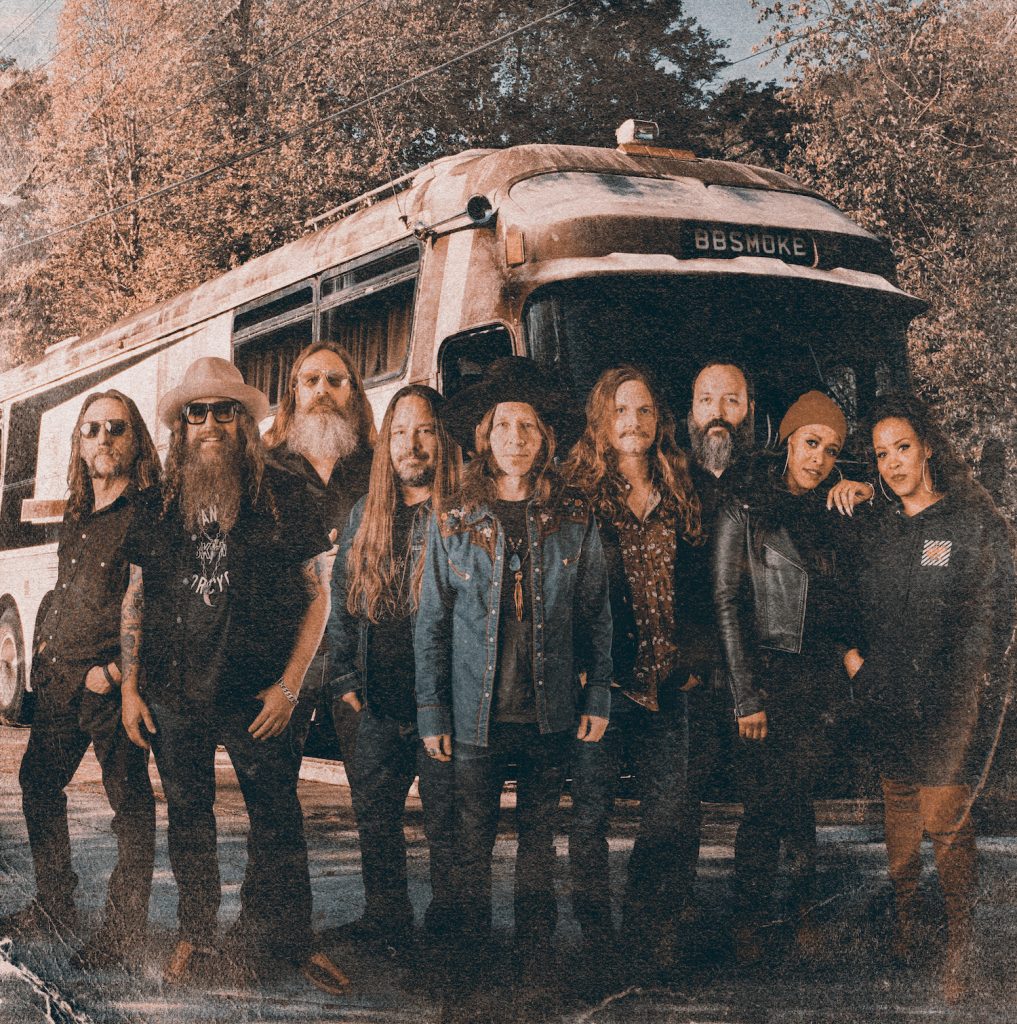
Is there anyone red-hot Nashville producer Dave Cobb hasn’t produced? His latest in a long list of recent clients: Smyrna, Ga.’s Blackberry Smoke, which is celebrating its 20th anniversary with the release of You Hear Georgia (3 Legged/Thirty Tigers). A steadfast tribute to their home state and all its polarities and contradictions, the quintet’s seventh full-length shouldn’t surprise anyone familiar with its straight-down-the-middle blend of country, R&B, hard rock and Southern boogie. Relentless road hogs, Charlie Starr and the rest of the band know they’ve got a live one on their hands, with tracks like “Hey Delilah,” “Live It Down” and “All Rise Again” (with Gov’t Mule’s Warren Haynes) just begging to be aired out onstage in a post-COVID spate of touring.
In typical Cobb fashion, You Hear Georgia was recorded live on the floor of Nashville’s iconic RCA Studio A. That gives the album a warm punch to go with its measured optimism and undeniable sense of place. No lockdown blues here.
As Blackberry Smoke prepped the tour bus for a string of summer and fall dates, Starr hit on a number of topics, including the band’s indelible affiliation with the South, finally getting a turn into the studio with Cobb and feeding the touring jones.
Happy 20th birthday. What were the early years like for Blackberry Smoke?
We made our first record (2004’s Bad Luck Ain’t No Crime) in Kennesaw, Ga., with Jesse James Dupree from Jackyl, and then we went out on the road with them. At that point, we’d been playing for nobody—except our girlfriends. The first fans we made were in Michigan, Wisconsin and Minnesota.
One would assume you have a better fanbase in your hometown these days.
Now our girlfriends are our wives, and they still come. [Laughs]
You Hear Georgia was made in just 10 days, but it sure doesn’t sound like it.
It was five days of tracking and five days of mixing. Dave Cobb is a good one—super-passionate about making great records and a fan of music. We spent half the time every day talking about what we liked about the Stones, Otis Redding, Aerosmith, the Beatles … and the other half making music. He’s just not jaded at all. He genuinely loves his job.
Were the songs pretty much fully formed when you took them into the studio?
Most of them were, and that’s generally the way we work. But the title track was the complete opposite. On the fourth day of tracking, I was sitting on the couch fiddling with this new thing I was working on, and Dave came over and said, “What’s that?” I and I said, “Well, it’s not anything yet. I’m not done with it.” He said, “Go get done with it, because I love it and want to record it.” So I went back to the hotel room that night and finished it. The guys in the band hadn’t even heard it, and it went down so quickly. When Dave said he thought we should call the record You Hear Georgia, we all grinned.
Would you describe You Hear Georgia as more of a topical album?
Maybe it might come across that way, but it’s just a batch of songs. You’d think it would be an album about COVID, but it’s not really. The only song about the topic is “All Rise Again,” and that’s because Warren Haynes and I wrote that while we were locked down. Hearing his voice come in on that song is just a goosebump moment. He’s such a force.
What about your collaboration Jamey Johnson?
I’d spoken with Jamey back at the end of 2019, and he’d mentioned wanting to do something else after we did the “Yesterday’s Wine” thing back in 2009. I wrote “Lonesome For A Livin’” as a tribute to George Jones. I played it for Jamey, and he liked it. The singer in that song is an old, grizzled honky-tonk singer. When I talk about country music, that’s what I’m talking about. I know that sounds like my grandpa, but it’s true. I never get tired of traditional country music. It’s in my bloodstream just as much as Led Zeppelin is. Dave got really excited about giving that song a mid-’70s feel. You never want to polish a song like that too much.
Staying off the road must’ve been tough for you guys.
It’s been like kicking a crazy drug habit … 20 years, and then just unplugged instantly. It was really hard to come to terms with—not to mention kissing your income goodbye. At one point, we realized we just had to work where we could work, because we’re independently owned and operated, and we can’t survive.
—Hobart Rowland






